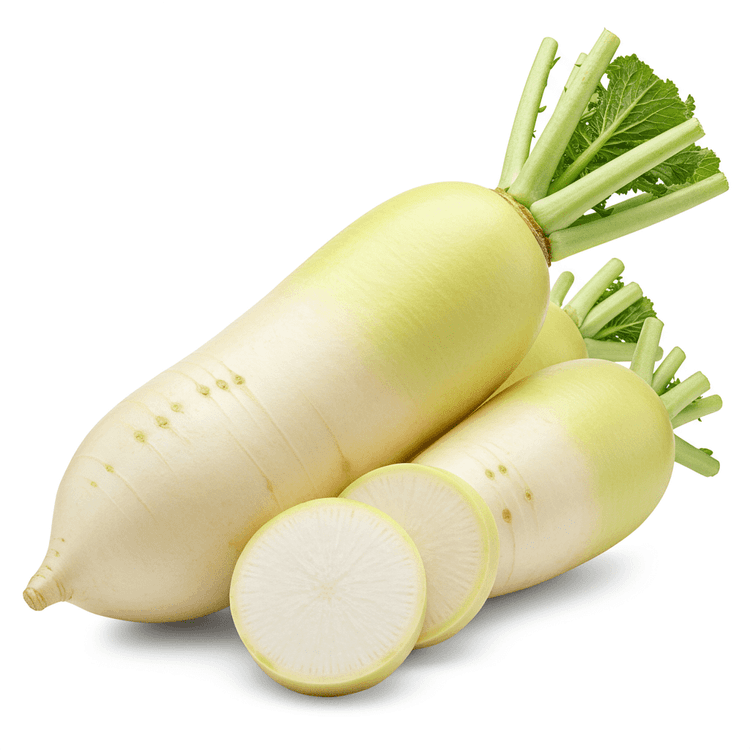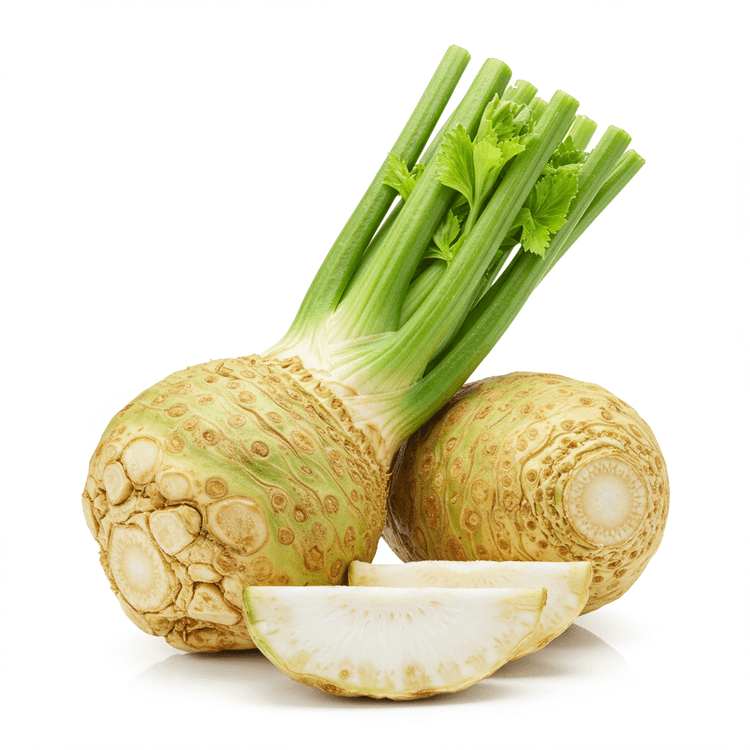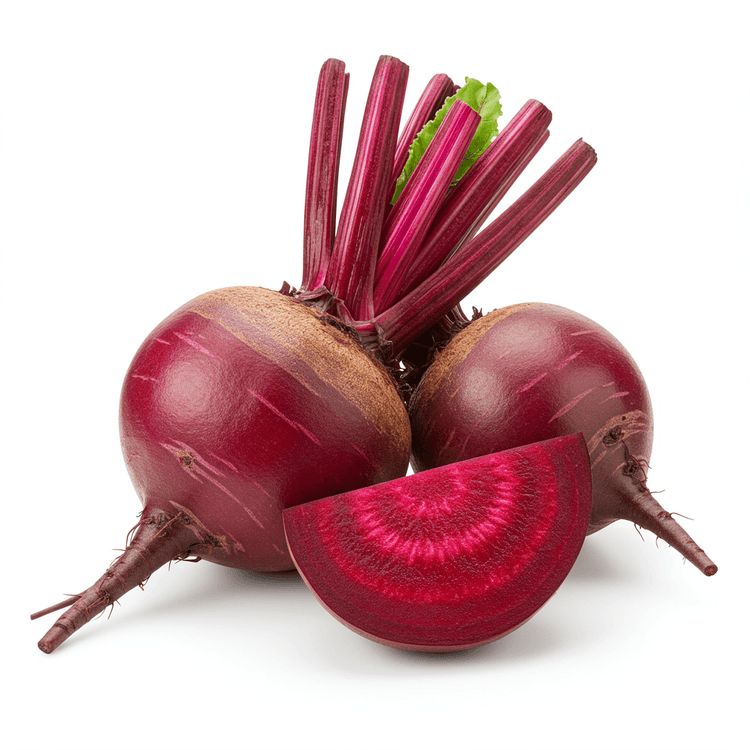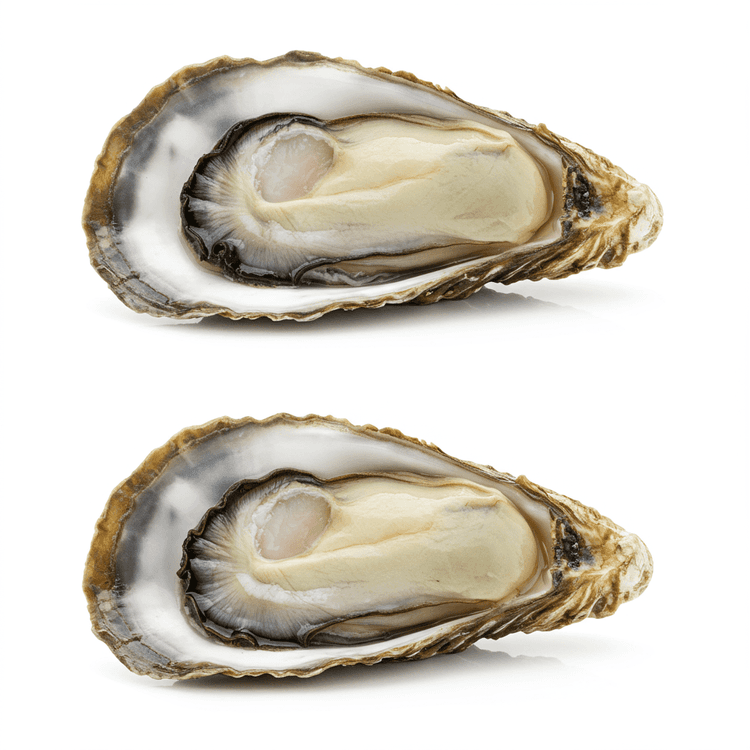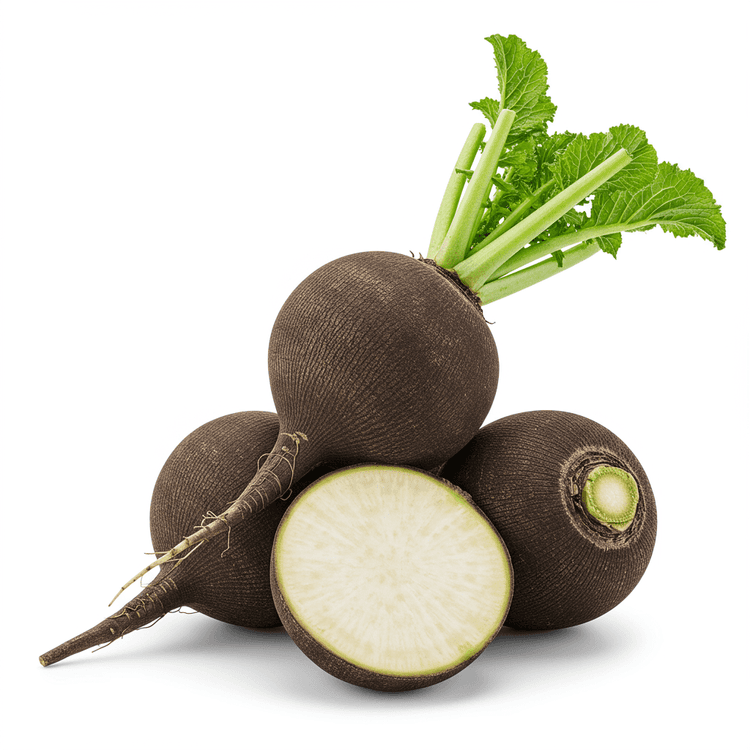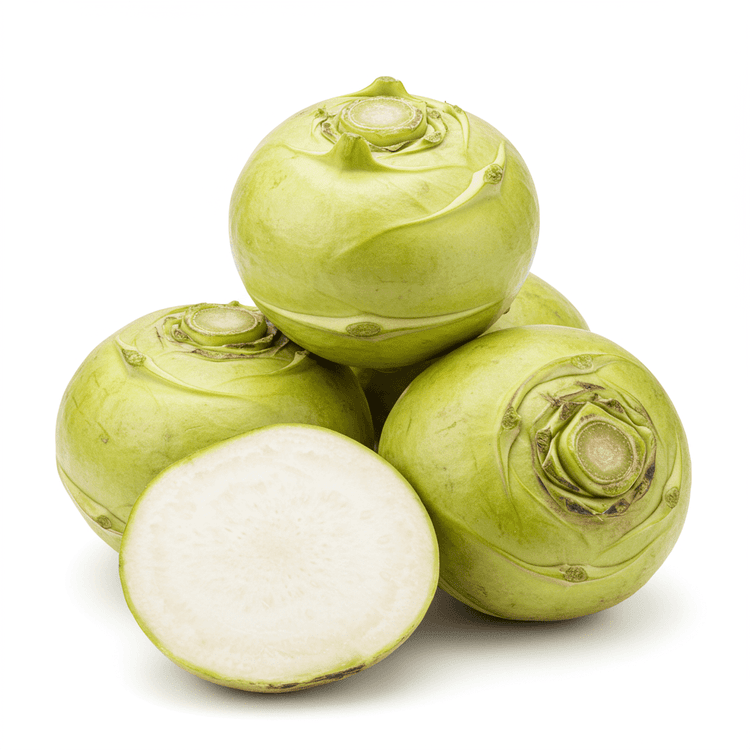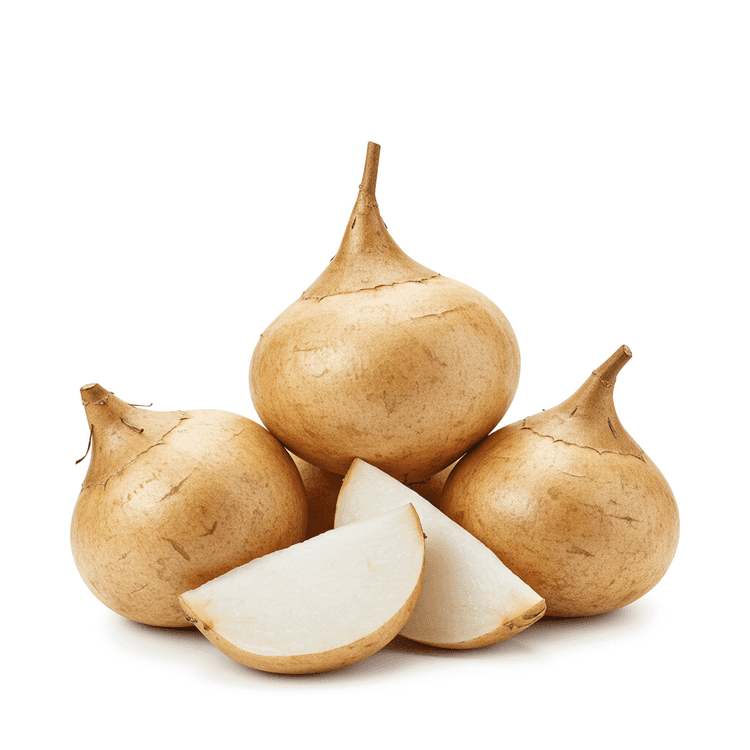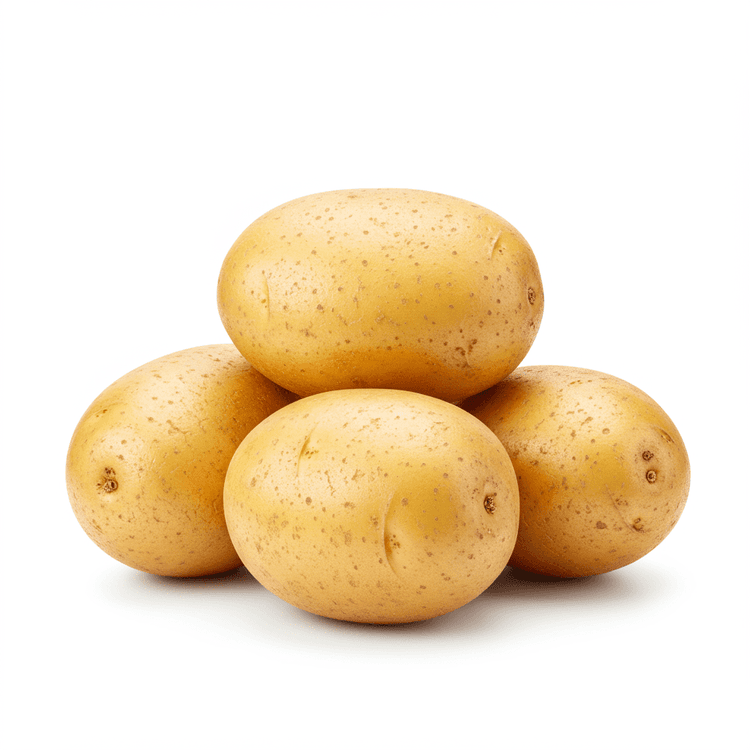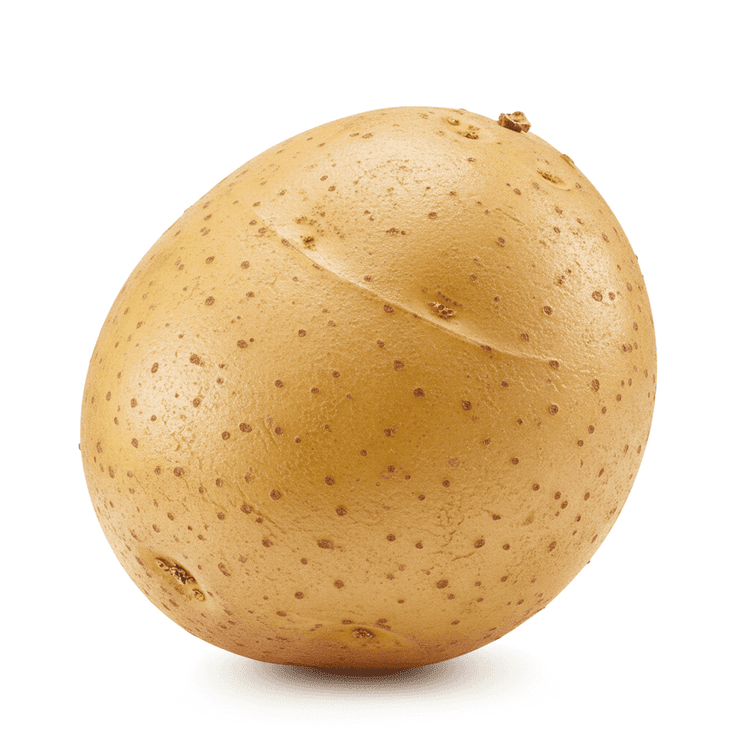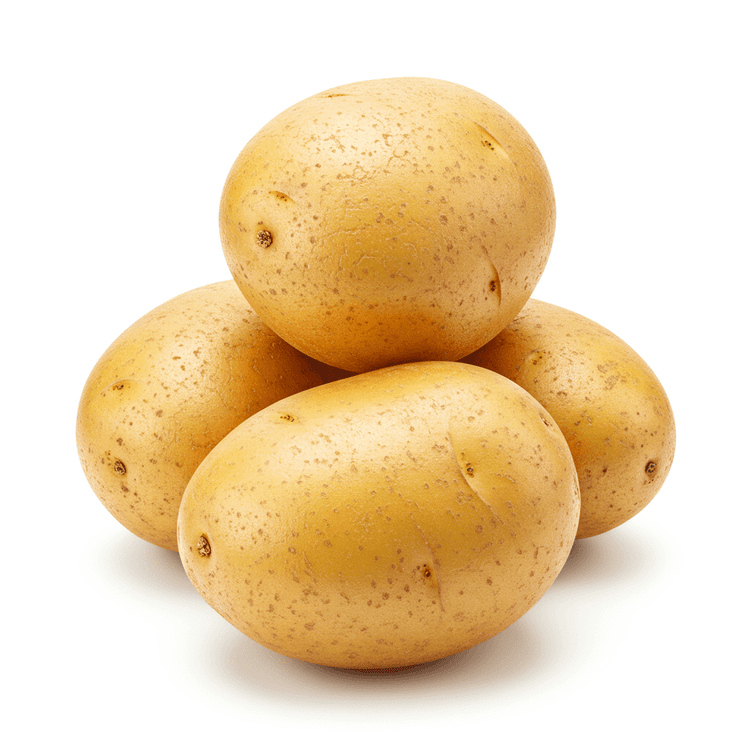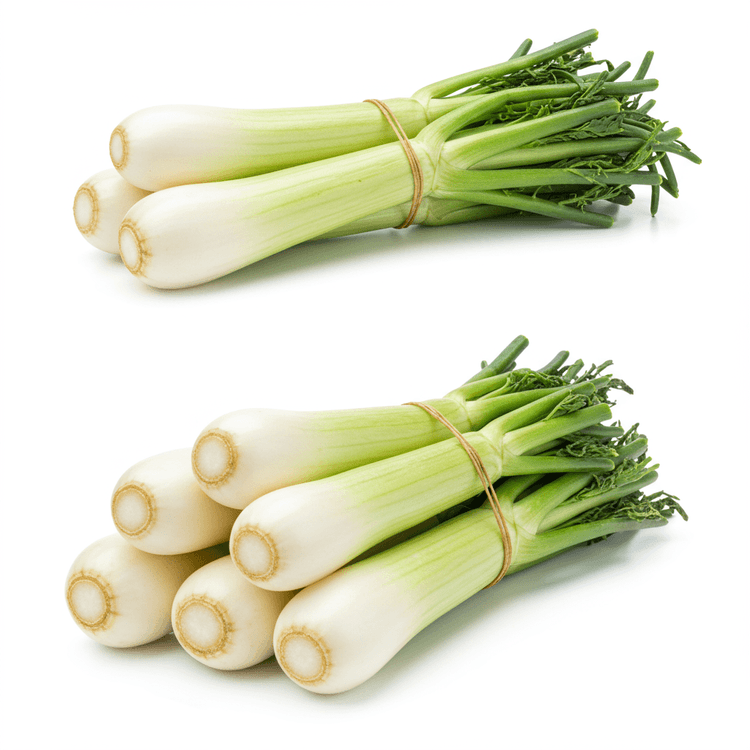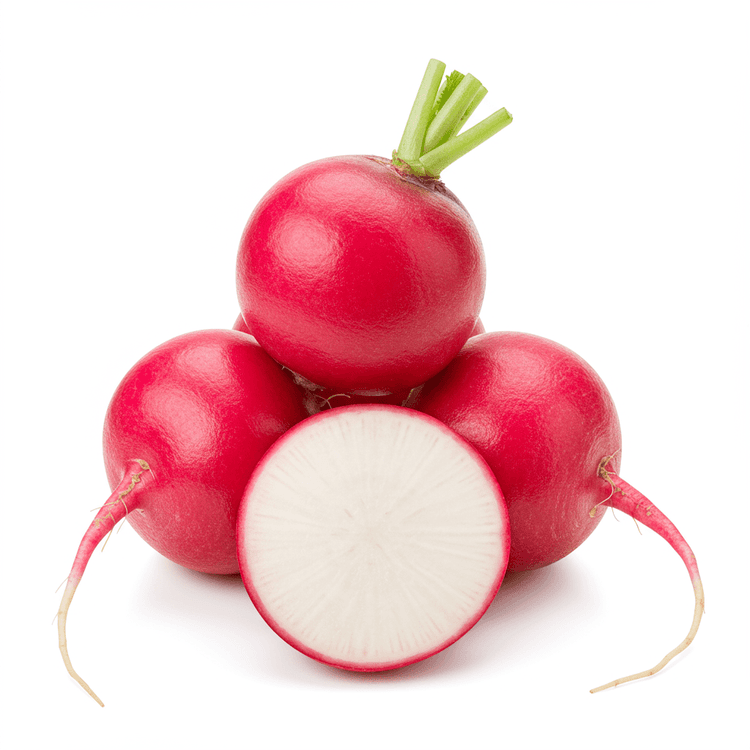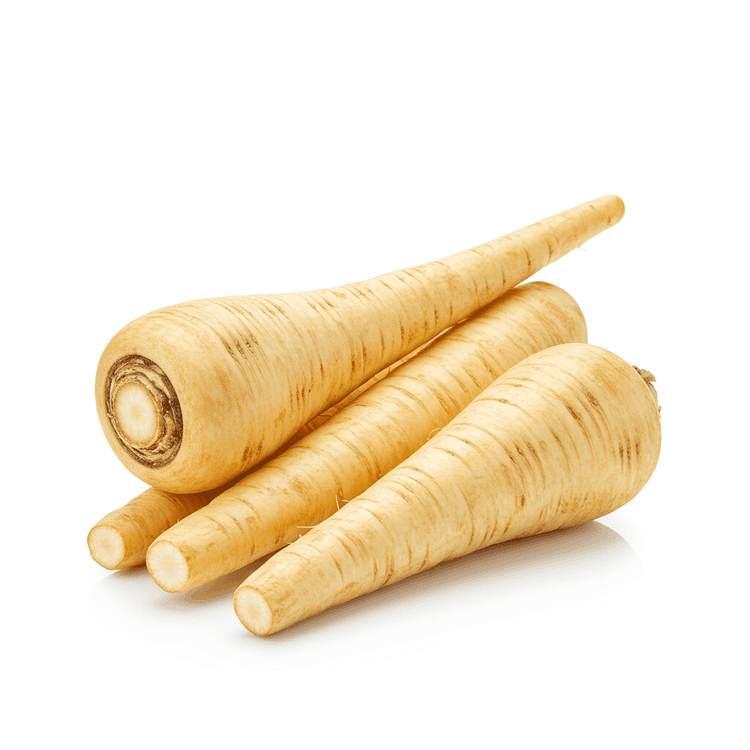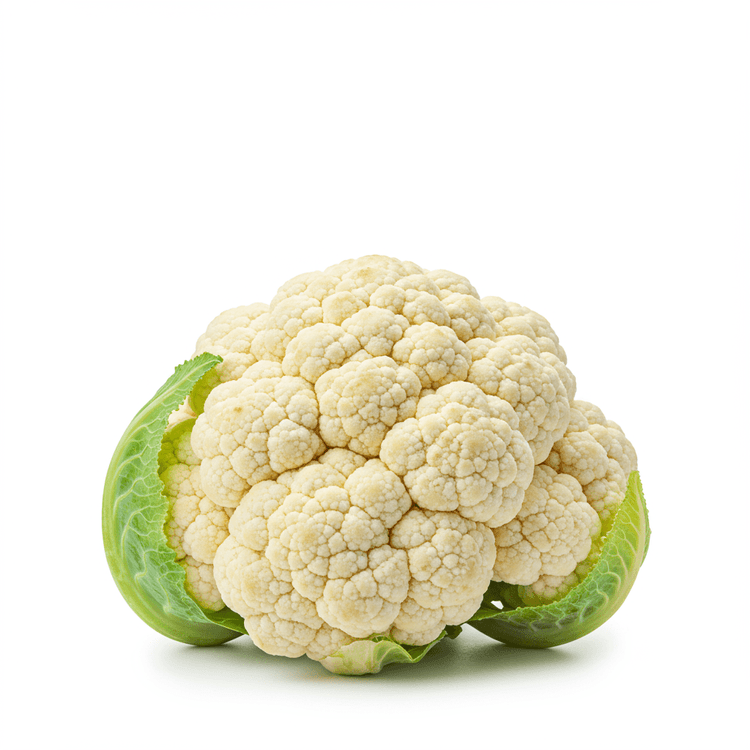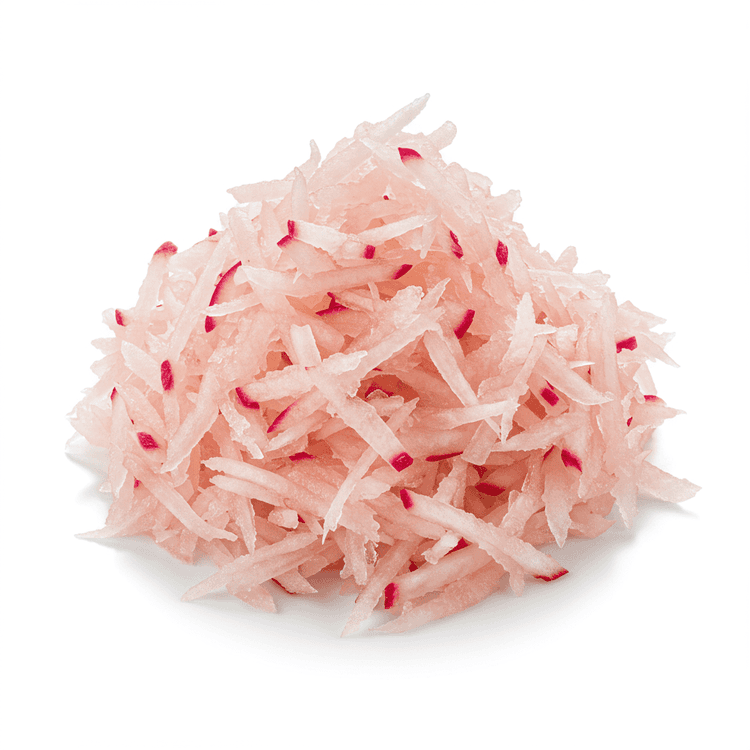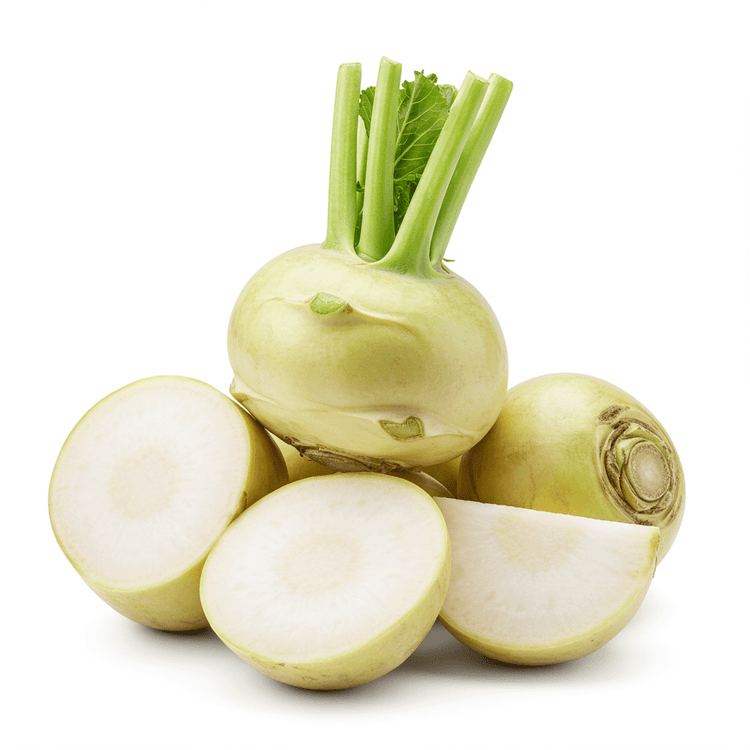
Turnip
The turnip, a root vegetable belonging to the Brassica family, is characterized by its round shape and smooth skin, typically white or purple on top where exposed to sunlight and white below ground. Its crisp, dense flesh offers a mildly pungent and slightly sweet flavor, becoming sweeter when cooked. Raw turnip has a slightly peppery bite, while cooked turnip develops a smoother, more mellow taste. High in fiber and vitamins, turnips are a versatile and nutritious addition to various dishes.
Common Uses
- Mashed Turnips: Turnips can be boiled or steamed until tender, then mashed with butter, cream, and seasonings for a comforting and flavorful side dish, offering a nutritious alternative to mashed potatoes.
- Roasted Turnips: Cubed turnips tossed with olive oil, herbs (such as thyme or rosemary), and spices (like garlic powder or black pepper) can be roasted in the oven until caramelized and tender, creating a savory and slightly sweet vegetable dish.
- Turnip Greens: The leafy green tops of the turnip are also edible and nutritious. They can be sauteed with garlic, onions, and olive oil for a simple and healthy side dish, similar to collard greens or spinach.
- Turnips in Soups and Stews: Diced turnips add body and subtle sweetness to soups and stews, complementing other root vegetables and proteins in hearty winter meals.
- Pickled Turnips: Turnips can be pickled in vinegar, sugar, and spices for a tangy and crunchy condiment, often used in Middle Eastern and Eastern European cuisines.
- Raw in Salads and Slaws: Grated or thinly sliced raw turnip can be added to salads or slaws for a crunchy texture and a slightly peppery flavor. Consider pairing it with apples, carrots, and a creamy dressing.
Nutrition (per serving)
Nutrition (per serving)
Calories
28.0kcal (1.4%)
Protein
0.9g (1.8%)
Carbs
6.4g (2.33%)
Sugars
3.8g (7.6%)
Healthy Fat
0.0g
Unhealthy Fat
0.0g
% Daily Value based on a 2000 calorie diet
Nutrition (per serving)
Calories
28.0kcal (1.4%)
Protein
0.9g (1.8%)
Carbs
6.4g (2.33%)
Sugars
3.8g (7.6%)
Healthy Fat
0.0g
Unhealthy Fat
0.0g
% Daily Value based on a 2000 calorie diet
Health Benefits
- Rich in Vitamin C, boosting immunity and acting as an antioxidant.
- Excellent source of dietary fiber, aiding digestion and promoting gut health.
- Contains glucosinolates, which may have cancer-protective properties.
- Low in calories and carbohydrates, making it a great choice for weight management.
- Good source of potassium, contributing to healthy blood pressure.
- Provides calcium for strong bones and teeth.
Substitutes
Chefadora AI is here.
Experience smarter, stress-free cooking.
Storage Tips
Turnips should be stored properly to maintain their freshness and flavor. Remove the greens before storing, as they can draw moisture from the root. Store the turnip roots unwashed in a plastic bag in the crisper drawer of your refrigerator. They can last for several weeks this way. Turnip greens should be stored separately, also in a plastic bag in the refrigerator, and used within a few days. For longer storage, turnips can be blanched and frozen.
Marnirni-apinthi Building, Lot Fourteen,
North Terrace, Adelaide, South Australia, 5000
Australia
